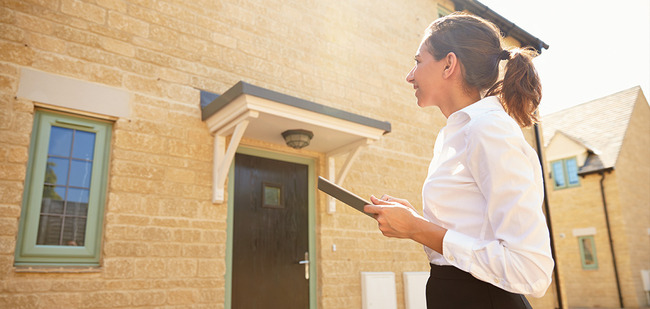
14 Nov, 2024/ by Surveyor Local /News
Only one in five property buyers commission a survey before purchasing a new home. But most buyers will get a valuation on a place because the lender insists on it before agreeing to a mortgage.
While those valuations will be made by a chartered surveyor, the actual inspection done by the surveyor cannot be compared to a RICS Level 3 survey or a HomeBuyers' report, both of which are more in-depth examinations of a structure. Carried out by chartered surveyors who are members of the Royal Institution of Chartered Surveyors (RICS), you can find out about RICS survey levels here.
Instead, the valuation is usually in place to ensure the lender will not lose out if the buyer defaults on a mortgage.
So, how does a surveyor decide how much an individual property is worth? Here at Surveyor Local, we examine mortgage valuations and the factors that determine a property's value in-depth and demystify the process for buyers.
What does a mortgage surveyor look for?
A mortgage surveyor will look for any apparent defects or problems with the property that may impact its value. Mortgage valuations are required for both buying a house and remortgaging one. In the latter case, the householder will likely want the valuation to reach a certain level to access more funds from their lender. The lender, however, needs to ensure that the property will fetch at least the mortgage level when sold on the open market.
The lender will apply the same criteria to a new purchase. They need to know if the house or flat will sell for at least the outstanding mortgage amount so they don't miss out. That occasionally conflicts with what the buyer might need, which is the valuation to reach a particular level to achieve the best mortgage offer.
The element of risk involved for the lender tells you how important it is from the off to understand that the need to protect the lender's investment means the valuer will err on the side of caution when it comes to putting a figure on a property, a valuation that will be eminently realistic to the surveyor but might seem quite pessimistic to the buyer or re-mortgagee.
How do surveyors value a property?
Now that you know the starting point for a valuation, what other factors are considered before the final figure is reached? All lenders have different criteria for mortgage valuations, and individual cases are treated on their own merit. That means the surveyor will receive a specific brief tailored to the property he or she has been asked to value.
In general, they will examine the exterior and interior condition of the property, assessing any renovations or extensions and looking for any potential issues, such as dampness, electrical problems, missing roof tiles, or leaking guttering. Their job is also to ensure the particulars of the property are accurate - i.e., that it is a first-story flat or a three-bedroom detached villa - so there are no nasty surprises, such as an extension without planning permission or a large room illegally subdivided.
Where the surveyor does spot potential problems, these will be outlined in the final report, often with a recommendation that a more detailed RICS Level 3 survey takes place.
What do surveyors check when valuing houses?
The property surveyor will inspect the house for defects and examine the local area for flood risk and other environmental factors, such as planned developments or those underway, road projects, exposure to radon gas and the like.
They will also look at what similar properties locally have achieved on the open market in recent months to make a reasonable comparison with the one they are valuing. That's not always an easy task for various reasons - your chosen property might be a one-off, and there may not have been many sales of that type in the last six months.
Ideally, the surveyor will look at the sale price of at least three similar houses or flats locally for comparison, but they may have to cast their net wider geographically to achieve this. This process plays its part in the eventual valuation reached.
The surveyor aims to be as accurate as possible in their property valuation report. A lower valuation that doesn't quite match the buyer's expectations might actually be a blessing in disguise because it opens the door to re-negotiating the sale price with the seller.
Find expert advice on the right survey for you
A mortgage valuation may be enough for some buyers, but the security and peace of mind that come with having a more detailed investigation of your potential new home carried out can't be beaten.
At Surveyor Local, we only work with chartered surveyors who are members of the RICS. With a nationwide panel to choose from, our sales team can arrange for a local surveyor to carry out the survey of your choice quickly and efficiently.
Find all the information you need for buying or selling a house. If you have any questions about our range of services or are inquiring about a survey, then be sure to contact us, and a member of our team will be happy to help.
